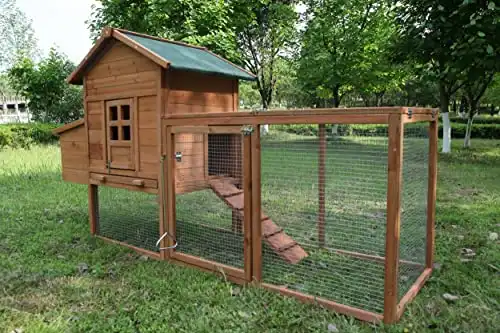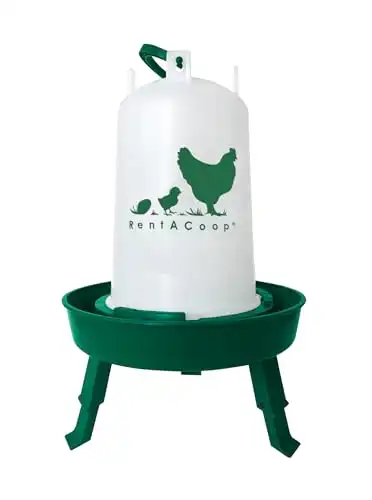14 Costs of Raising a Chicken to Save Money and Ensure Fresh Eggs
Calculating the cost to raise a chicken involves factors like coop setup, sanitation, nutrition, medical care, predator protection, and egg production challenges in winter.

Raising a chicken seems like more and more of a good idea recently. Inflation has raised the price of food significantly, and eggs are currently at an all-time historical high. But you also have to consider the list of things to calculate the cost of raising a chicken.
Raising chickens is enjoyable and ensures a steady egg supply, but it requires careful budgeting. Factor in costs like coop setup, feed, medical care, and predator protection. Be prepared for expenses such as sanitation, pest control, and winter egg production slowdown. Calculate these costs before buying chicks.
Disclosure: As an Amazon Associate, this site earns from qualifying purchases. Thank you!
1. Cost Of The Chicken
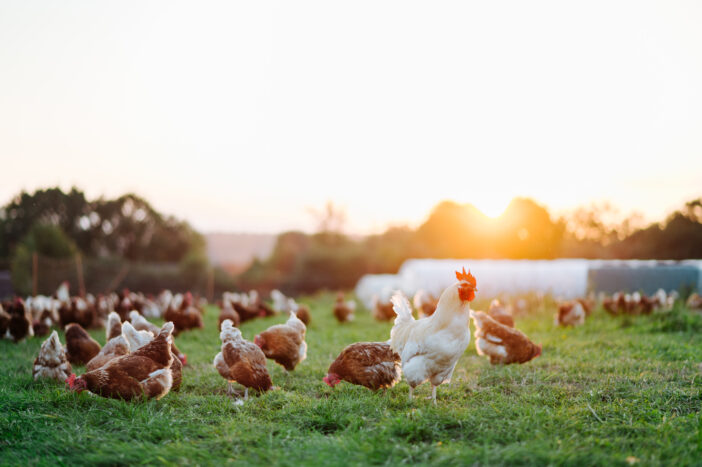
The first thing to consider when calculating the cost of raising a chicken is the price of the actual bird. The price will differ depending on whether you want to buy a chick or an adult. You will also pay premium prices if you plan to buy a special breed of chicken.
Many people look at the price of chickens and think that’s it. However, the cost of the chicken is only one number to add to the list of factors involved in the calculation.
2. The Coop/Cage
If you plan to raise a chicken, you will require some sort of cage or chicken coop. Even if you plan to let your chicken roam around as freely as possible, you will still need to create some containment or segregation to keep it within specific bounds for their safety. You can purchase a chicken coop or build one yourself to cut costs. The birds require shelter, especially to keep warm and for somewhere to rest when it rains.
3. Chicken Bedding
Chicken bedding is an added cost for their soft and insulated comfort. It also helps to keep the coop clean by managing the chicken droppings (poop). It absorbs moisture from fecal waste Chicken bedding is alternatively called litter and provides a surface for scratching and resting.
4. Sanitation Practices
You might not have thought about sanitation because many people avoid or ignore the practice. But sanitizing your yard or the area where you will raise your chicken is recommended. Not only is that good for the chicken’s health, but yours too.
It also reduces and prevents bacteria growth and recurring pesticides. Before getting a chicken, it is great to get it done. It should also be done as a maintenance practice every few months of having the chicken. Costs will be involved whether you do it yourself or hire a company.
5. Nutrition And Food
Food is one of the highest costs people think about when raising a chicken. And it is with good reason. You will need to buy food regularly, either weekly or monthly, depending on how much you buy at a time and how many chickens you have.
You must also consider the price difference between regular chicken feed and organic food. Organic, non-GMO food will be more expensive but is worth it in the long run for the chicken’s health and yours.
You can prepare veggies/greens to give your chicken variety. That must also be calculated because you will purchase more than usual. Chickens also need worms and all sorts of bugs for their natural diet, and if your land doesn’t provide that, supplementing will be necessary, which is an added cost.
6. Cleaning Expenses
Keeping your yard, the coop, and everything clean and hygienic will require proper and regular cleaning expenses. You can do it yourself to reduce costs, but you will want to consider any tools and products you need to do the job. Those costs eventually add up.
You can also hire someone to clean for you and pay them. Outsourcing that task will add to your weekly/monthly cost of raising a chicken and should not be overlooked when you do your calculations.
7. Medical Care
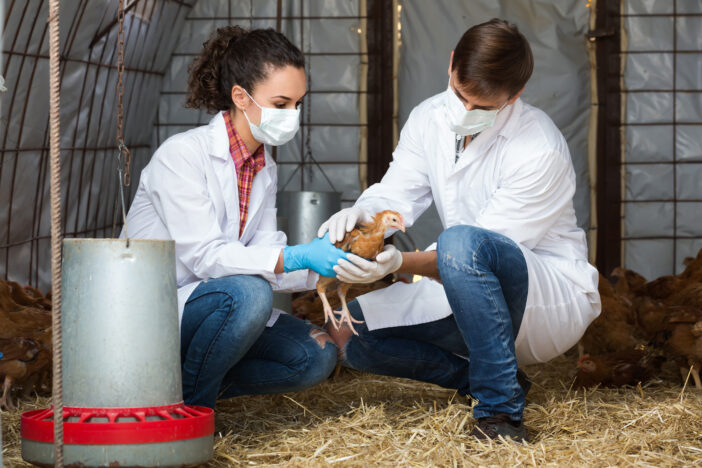
Another cost to factor in is possible medical care. Chickens do not need antibiotics unless they have an infection, but financially preparing for that is a good idea. You will have to cover the medical costs if anything else happens to your chicken’s health. Always make room for that in the budget.
8. Slow Egg Production In Winter
If you plan to raise a chicken for eggs, you may want to consider that egg production can stop or reduce significantly during the winter months. The chickens need additional warmth and a special light to continue producing eggs. That must be added to the cost calculation if you plan for it.
If you plan to let the chickens produce eggs naturally, you may have to supplement with eggs from the store during winter. If you use a lot of eggs and won’t have enough from your chicken during the colder months, thinking ahead about the cost of purchasing eggs is necessary.
In the video, CityChick explains –
CityChick
- Seasonal Influence: Chickens typically slow down or stop laying eggs in winter due to reduced daylight hours.
- Sunlight Requirement: Chickens need 14 to 16 hours of consecutive sunlight for consistent egg-laying, as sunlight provides essential vitamin D.
- Age Factor: The age of the hen plays a significant role. Hens are born with a finite amount of eggs, and egg production declines with age.
- Peak Production: Hens usually start laying eggs around six months old, with peak production in the first year.
- Production Decline: Egg production declines by 20-25% in the second year and continues to decrease in subsequent years.
- Managing Expectations: Expect a reduction in egg production after the first year, especially during winter months.
- Artificial Lighting: While it’s possible to use artificial UV light to stimulate egg-laying in winter, it’s not recommended, as hens deserve a natural break.
- Alternative Methods: Some alternative methods, like feeding chickens cat food or red pepper flakes, are not scientifically proven and not recommended.
- Respecting Natural Cycles: Despite frustrations with reduced egg production, it’s essential to respect the natural cycles of chickens and provide them with a break.
- Engagement and Further Learning: Viewers are encouraged to engage with the content by liking, commenting, and subscribing for more information on chicken care and related topics.
9. Pest Control

Pest control is essential when raising a chicken. When you consider raising a chicken, you want to add pest control expenses to your calculations. The chicken’s health must be maintained in a clean, pest-free environment to protect your home and health.
10. Chicken Waterer
Chickens are big fans of water. They drink more than you would realize. Chickens also need fresh, clean water. The best way to keep their water clean for longer is by getting a chicken waterer. You can get as many as you prefer depending on how many chickens you raise.
If you have a large area, you may want to place a waterer on each end. Chickens go through a lot of water, and the best way to drink enough clean and fresh water is by using the chicken waterer. Always add a chicken waterer to your cost calculation when considering raising a chicken.
11. Chicken Feeders
Chicken feeders are a necessity and an item that must be added to your cost calculations. When you raise a chicken, you want to care for it as best as possible and ensure proper hygiene. Chicken feeders help to prevent the feed from getting knocked into feces and reduce messes.
12. Predator Protection
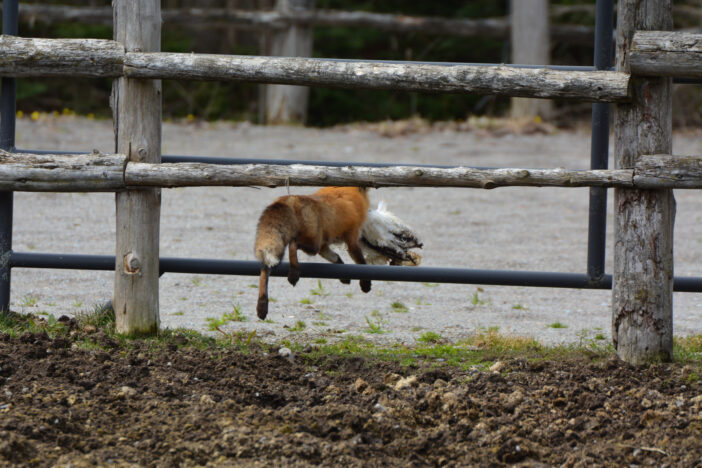
Another aspect many people overlook when planning to raise a chicken is predator protection. Even if you have an enclosed yard, chickens can sometimes find a way out. Predators can jump over walls and dig underground to get to the chickens.
One of the highest costs you must consider is putting up a predator fence and ensuring it is secured a good few inches into the ground. This will prevent any animals from trying to hurt your chickens or people from breaking in to steal your chickens.
13. Yard Maintenance
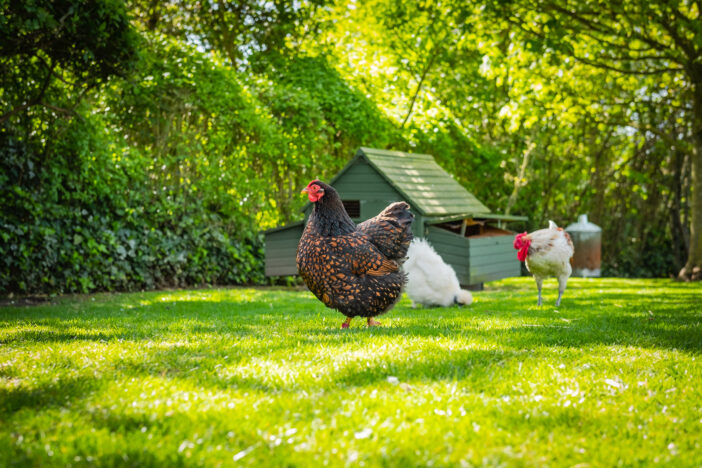
Yard maintenance is another overlooked cost by many. Cleaning, planting, cutting, etc., must all be kept in mind. Even the cost of fertilizer must be considered if you plan on giving your chicken an entirely natural, organic experience.
The yard will need trimmings. The coop must be maintained and checked for any damage. All these factors will require some expense, whether done yourself or by someone you need to pay. Making way for it in your budget is always a good idea.
14. Egg Storage and Refrigeration
If you’re raising chickens primarily for eggs, you’ll need to consider the cost of egg storage and refrigeration. This includes purchasing egg cartons, storage containers, and possibly a dedicated refrigerator or cooler to keep eggs fresh.
Frequently Asked Questions
Is It Cheaper To Raise Your Own Chicken?
Raising your own chickens is cost-effective compared to buying eggs, even after factoring in monthly care expenses, and offers healthier, higher-quality eggs. Raising chickens for their meat can work out a little more expensive because you will pay a monthly average of $13-15 until that chicken is grown and ready to be slaughtered. You can buy organic chickens from a local farmer without the overhead of raising them yourself. Yet, considering the eggs you’ll get over time from raising your own chickens, the overall advantage is significant.
Is The Cost Of Raising A Chicken Worth It?
Whether the cost of raising a chicken is worth it or not depends on which angle you look at it from. Raising chickens is worth it if you think about the price of eggs. It can be less worth it if you want to slaughter the chicken for its meat. Raising your chickens provides natural, organic eggs and meat, free from hormones and antibiotics, promoting better health and potentially reducing medical expenses. Knowing what you consume safeguards against potential harm from store-bought poultry products.
How Much Does It Cost To Raise A Chicken To Slaughter?
After considering all costs, from setting up the coop to chicken feed and everything else involved, it would cost around $13-$15 per month per chicken. You can keep a chicken for 2-3 years at its best health. That would cost you around $312-$540 in total. If you raise that chicken for longer to get as many eggs as possible, you can keep it for up to 5 years. More than that is not recommended as the chicken will be old. The longer you raise a chicken, the more your cost will rise before you slaughter it.
How To Lower The Cost Of Raising A Chicken
Raising a chicken can become expensive, no matter how many eggs you get. Here are some ways you can make it more pocket-friendly and break up the costs:
- Start slow: When starting up, take things month by month. You can first prepare your yard and get a coop. The next month you can add bedding, feeders, waterers, etc. Allow yourself a few months to prepare before you take your chicken home.
- Purchase bulk feed: Buying bulk feed is always cheaper, even when you purchase organic food. Find out if there are any discounts and stock up. This takes the load off month to month.
- Do the work yourself: Instead of outsourcing builders, cleaners, etc., to do all the work of raising a chicken, do it yourself.

